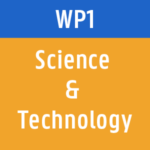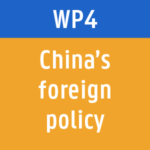 ReConnect Policy Brief 6 Policy Orientations on EU-China Relations in Semiconductors: An outlook on bilateral and multilateral agendas (11/22/2023)
ReConnect Policy Brief 6 Policy Orientations on EU-China Relations in Semiconductors: An outlook on bilateral and multilateral agendas (11/22/2023)The international agenda on semiconductors is not only a matter of U.S.-China rivalry. Also, the EU plays a major role, in terms of economy, industrial policy and security. Moreover, jointly with EU institutions, each Member State needs to decide which approach to semiconductors, to China and to global technology governance it aims to undertake. Semiconductors have been embedded through an economic security outlook. However, this area cannot be only addressed on a bilateral basis. The understanding of how the EU’s own technology partnerships with third countries are framed will provide policy guidance on how the Union may approach China, in their own mutual relationship and in how both sides reflect their own agendas within international fora and multilateral dialogues where semiconductors play an increasingly strategic role. ReConnectChina_Policy Brief 6_Semiconductors
 ReConnect China Policy Brief 5 on Navigating EU-China Investment Dynamics: Safeguarding Technological Know-How while fostering Cooperation (11/13/2023)
ReConnect China Policy Brief 5 on Navigating EU-China Investment Dynamics: Safeguarding Technological Know-How while fostering Cooperation (11/13/2023)China’s investment and acquisitions in the European Union have increased significantly in recent years, raising concerns about their impact on European economies and security. The dynamics of the EU-China relationship have evolved significantly over time, with the past year marked by a deterioration in bilateral relations. This deterioration has been linked to a growing number of issues, such as China’s responses to EU sanctions on human rights, economic coercion affecting the single market, and its stance on the Ukraine conflict. The EU faces the complex challenge of dealing with China as both a negotiationg partner, economic adversary and systemic competitor. This complexity characterises the current state of EU-China relations, where a variety of challenges and opportunities are emerging, driven by intertwined economic, political, and strategic factors. ReConnectChinaPolicyBriefSafeguardingTechnologicalKnowHow
 ReConnect China Policy Brief 4 assesses China’s Lunar exploration program in competition with the United States (11/13/2023)
ReConnect China Policy Brief 4 assesses China’s Lunar exploration program in competition with the United States (11/13/2023)A new Cold War-style race to the moon seems to be in the making. The People’s Republic of China and the United States are both investing in moon exploration with manned lunar scientific stations as the ultimate goal. The comparison with the 1960s has its limits, nonetheless, because this time the race is not only to tuch down the moon’s surface and return to Earth, but to promote a long-term scientific development on the moon and far beyond. This ReConnect China Policy Brief breaks down the state of play of the China-US race to the moon, and considers the strategic ambitions, technical requirements, and necessary diplomatic support for such a great aim. ReConnect China-Policy Brief_Racing to the moon
 ReConnect China Policy Briefs no.2 and 3 draw policy recommendations on EU-China STI cooperation in the big data-related scientific fields (10/13/2023)
ReConnect China Policy Briefs no.2 and 3 draw policy recommendations on EU-China STI cooperation in the big data-related scientific fields (10/13/2023)Based on the comprehensive report on EU-China STI cooperation in the big data-related scientific fields (artificial intelligence, big data and machine learning), two more policy briefs were published by the project. We used the report’s key results and aimed at embedding them in the overall policy discourse and legislative framework pertaining to science and technology cooperation between the EU and China. As a corollary, current developments in STI policy-making both on the EU’s and China’s side are explained, with a particular focus on the question how both actors aim to govern the future proliferation and protection of data stemming from research on AI, BD and ML from a legal viewpoint. The policy briefs conclude with a list of policy recommendations addressed both to the EU and the Member States level. While any risks or unfavourable conditions in research cooperation with China that could potentially conflict the EU’s interests and values must definitely be taken into account, we recommend European R&I actors to take case-by-case decisions on concrete research cooperation offers from their Chinese counterparts that are grounded in information provided by specific risk assessment and due diligence services.
 ReConnect China Policy Brief 1: ‘Remonstrating,’ or the Art of Forging Relations (Bart Dessein & Jasper Roctus) (5/29/2023)
ReConnect China Policy Brief 1: ‘Remonstrating,’ or the Art of Forging Relations (Bart Dessein & Jasper Roctus) (5/29/2023)“Why does an adviser have the duty to remonstrate with his ruler? Because he exhausts his loyalty and gives [him] his sincerity. In the Analects it is said: ‘If one loves someone, could one refrain from cheering [him] on? If one is loyal to someone, could one refrain from teaching [him]?’” (Discussion in the White Tiger Hall (Baihutong 白虎通), Vol.4: Remonstrance (Jianzheng 諫諍).1 This appeal that dates back to the beginning of the Common Era appears to still have its value in shaping great power relations in the contemporary era.
Stay tuned with us by reading more: Reconnect China Policy Brief 1 ‘Remonstrating,’ or the Art of Forging Relations (Bart Dessein & Jasper Roctus)